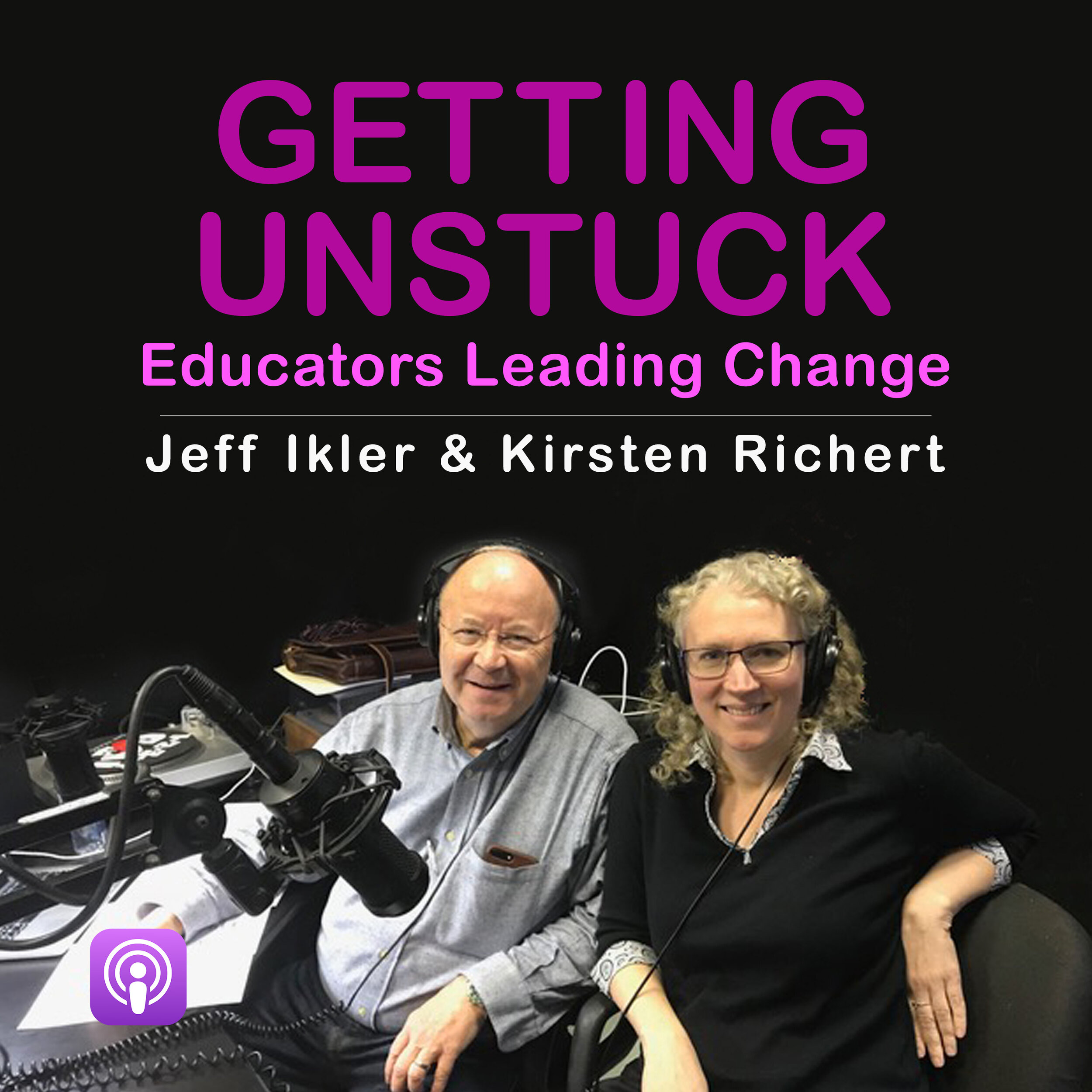Getting Unstuck #183: Whose History Is It Anyway?
“It’s so crucial for us as historians and teachers to look at what it means to be a critical thinker because in history, and in social studies in general, it’s increasingly challenging to have conversations where there is controversy.”
Our guest
Casey T Jakubowski, PhD specializes in CIVICS education, and Social Studies. He has a 20 year career in data driven instruction and reform. Casey has worked at all levels of K-12 education, and has been involved in state level curriculum reform.
Why this conversation matters
The teaching of American history and civics education is in the news a lot these days. We’re seeing lots of controversy and divisiveness around the approach we should take with our students.
The former president’s “1776 Commission” created a framework to “promote patriotic education.” It would “teach our children the magnificent truth about our country.”
A group of civics and educational institutions sponsored by The Department of Education and the National Endowment for the Humanities drafted a new strategy to revamp instruction in American history and civics called “Educating for American Democracy.”
Backlash in some parts of the country to the “1619 Project,” which sought to place the consequences of slavery and the contributions of Black Americans at the very center of the United States' national narrative.
State legislatures passing laws to restrict or eliminate the teaching of systemic racism via “Critical Race Theory.”
The condemnation of Howard Zinn’s A People’s History of the United States, which is characterized as left-wing socialism.
Every state has its own set of standards, some based on the old NCSS framework and or the C3 standards – college, career, and civic life – which is the “Framework for Social Studies State Standards: Guidance for Enhancing the Rigor of K-12 Civics, Economics, Geography, and History”
Listen for
√ Why it’s important to teach kids critical thinking
√ The challenges of teaching U.S. History
√ How emphasizing themes in U.S. History might make the learning experience more valuable
√ How the curriculum might best be served by balancing what’s “right” and what’s “not-so-right” in our history
√ How the Mississippi River can be used as an analogy for our diverse history
√ Why teaching critical thinking in the social studies could be seen as an act of civil disobedience
Connect with Casey
https://ctjakubowski.weebly.com/blog
@caseyj_edu
https://www.facebook.com/CaseyJthinkingaboutteaching
https://www.linkedin.com/in/ctjakubowski/
Referenced
Range: Why Generalists Triumph in a Specialized World by David Epstein
Connect with us
• Subscribe, and consider leaving us a rating and review on
or wherever you pick up your podcasts.
• Follow “Worth a Look, Listen, or Read” on LinkedIn – our new mini-podcast that reinforces key change and innovation concepts to help you get unstuck.



